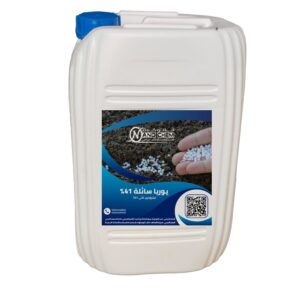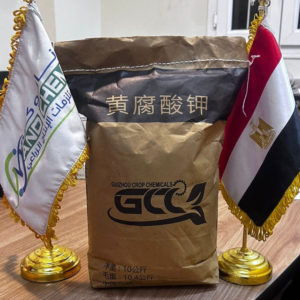Description
Manganese 13% refers to a formulation where manganese constitutes 13% of the total weight, commonly used as a supplement in agriculture to correct manganese deficiencies in soil. Manganese is a crucial micronutrient that plays several important roles in plant health and productivity. Here’s why Manganese 13% is significant in agriculture:
1. Critical for Photosynthesis
- Manganese is vital for the process of photosynthesis. It plays a key role in the water-splitting system of photosystem II, which is responsible for the generation of oxygen from water. Adequate manganese ensures efficient photosynthesis, leading to better growth and higher crop yields.
2. Activation of Enzymatic Processes
- Manganese acts as a cofactor for numerous enzymes involved in vital plant processes, such as the synthesis of chlorophyll, the metabolism of nitrogen, and the production of various antioxidants. By using Manganese 13%, plants can maintain proper enzymatic activity, which is essential for their overall health and development.
3. Prevention of Manganese Deficiency
- Manganese deficiencies are common in soils with high pH (alkaline soils) and those that are heavily limed. Symptoms of deficiency include interveinal chlorosis (yellowing between the veins of leaves) and reduced growth. Applying Manganese 13% helps prevent or correct these deficiencies, ensuring that plants have the manganese they need to thrive.
4. Improvement of Disease Resistance
- Manganese enhances the structural integrity of plant cell walls, making them more resistant to pathogen attacks. This increased resistance helps in reducing the incidence of certain diseases, thereby protecting crops and improving overall yield quality.
5. Enhanced Crop Quality
- Adequate manganese contributes to the overall quality of the produce. For example, in crops like cereals, manganese is essential for proper grain filling, leading to better yield and quality. In fruits and vegetables, it helps in improving the color, size, and taste of the produce.
6. Efficient Nutrient Uptake
- Manganese plays a role in the assimilation of other nutrients, particularly nitrogen. By ensuring that manganese levels are adequate, plants can more effectively utilize other essential nutrients, leading to balanced growth and development.
7. Cost-Effective Solution
- Manganese 13% is a cost-effective way to address manganese deficiencies in crops. It provides a concentrated source of manganese that can be easily applied to the soil or as a foliar spray, making it a practical option for farmers aiming to optimize plant health without incurring high costs.
8. Compatibility with Other Fertilizers
- Manganese 13% formulations are often compatible with other fertilizers and can be mixed with them, allowing for efficient and simultaneous application of multiple nutrients. This flexibility is beneficial in managing nutrient programs effectively.
In summary, Manganese 13% is crucial in agriculture as it helps in preventing and correcting manganese deficiencies, supports key plant functions like photosynthesis and enzyme activation, improves disease resistance, and enhances the overall quality and yield of crops.







Reviews
There are no reviews yet.